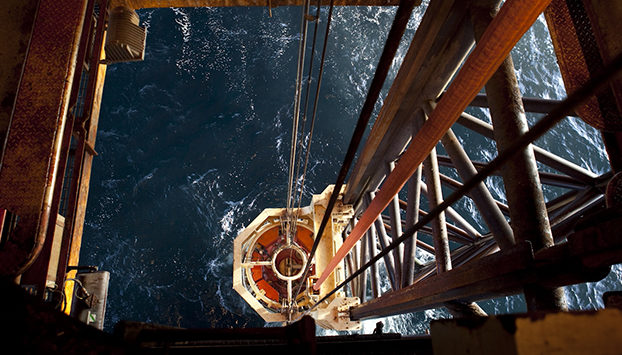
Exploration drilling in UK waters has collapsed and shows no sign of recovery either now or in the near future.
This is dangerous because the dramatic slowdown of recent years will lead to a development famine in around five years time, Offshore Europe delegates have been warned.
And, far more oil & gas is being extracted from the North Sea than is being found.
Just 14 exploration and appraisal wells were drilled last year … the lowest since the industry began in the 1960s; with little oil found.
According to Oil & Gas UK, it looks as if a similar number of wells will be completed this year.
“I don’t think there is any other way to say it, but exploration results continue to disappoint on the UKCS,” said Adam Davey, economic & market intelligence manager at OGUK.
“We’re not drilling (enough) wells at the moment on the UKCS. But perhaps the more alarming thing is the lack of success from those wells that we are drilling. I think that’s a major concern because it’s beginning to impact future and current behaviours.
“We haven’t found a field bigger than 100million barrels oil equivalent (boe) in size for seven years and that is leading to more cautious exploration behaviour.
“There have been very few large wildcat opportunities targeted by exploration companies on the UKCS over the last two or three years and I think that’s a reaction to the (lack of) success tree we’ve had.”
To put in into some kind of context, at the moment, UK sector explorers are finding around 50million boe a year. That’s been the pace for the last three or four years.
But average production over that time has been 500-500million barrels.
Davey said; “So, we’re actually producing eleven times more than we are finding on the UKCS, which is clearly an unsustainable rate.
“With production set to increase in the next few years, we need our exploration game picked up; as well as maximising recovery from existing assets to ensure they last longer.
“What happens if we don’t get it right? Well, much of the 2-9billion boe of yet to find potential (as described by DECC), could be left in the ground.
“We can’t wait forever on this. These discoveries are reliant on critical infrastructure. And whilst they’re there at the moment, they may be decommissioned in the future.”
Davey warned that, once the export route to these opportunities is removed through the scrapping of current fixed infrastructure, it could be curtains for such mini-discoveries.
But it’s not just exploration; appraisal is also important. The industry needs to manage, to phase its portfolio of developments.
Analysts at Wood MacKenzie estimate that over 300 undeveloped discoveries totalling almost 4billion boe exists on the UKCS.
These are opportunities that were searched for, located, but which haven’t yet developed.
“I recognise that many are very small accumulations and may never be viable, but also many don’t fall into that category,” said Davey.
“I think it’s time to look more closely at some of these opportunities, both new and brownfield, that are not ‘mind-blowingly’ big but could still be material to the future of the UKCS.”
Recommended for you
